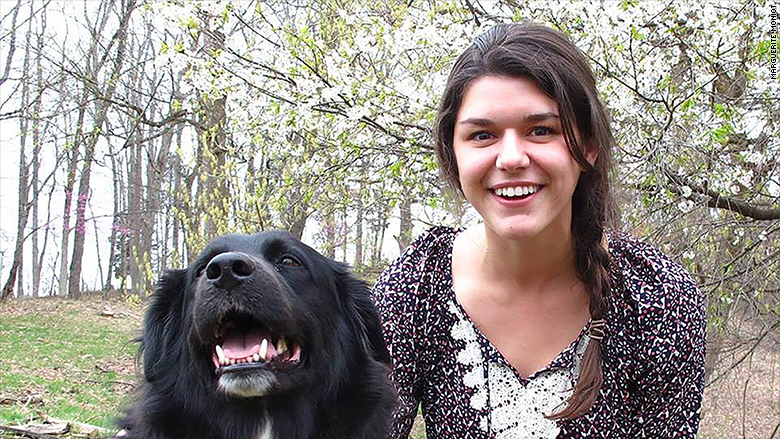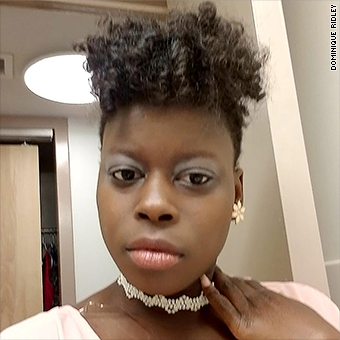Judul : Health Insurance Agent Quotes - 26-year-olds face challenges as they fall off parents' health insurance
link : Health Insurance Agent Quotes - 26-year-olds face challenges as they fall off parents' health insurance
Health Insurance Agent Quotes - 26-year-olds face challenges as they fall off parents' health insurance
Health Insurance Agent Quotes - 26-year-olds face challenges as they fall off parents' health insurance
Marguerite Moniot felt frustrated and flummoxed. Despite the many hours she had spent in front of the computer this year reading consumer reviews of health insurance plans offered on the individual market in Virginia, she still did not know what plan was right for her.
Moniot was preparing to buy an insurance policy of her own, knowing she
would age out of her parents' plan when she turned 26 in October. She
asked her parents for help and advice. But they, too, ran into trouble
trying to decipher which policy would work best for their daughter. The
family had relied on her father's employer-sponsored plan through his
work as an architect for years, so no one had spent much time sifting
through policies.
"Honestly, my parents were just as confused as I was," said Moniot, a restaurant server in Roanoke.
In defeat, just before Thanksgiving, she went with her mother to meet a
certified health insurance navigator and bought a policy that allowed
her to keep her current doctors.

A new crop of young people like Moniot are falling off their parents'
insurance plans when they turn 26 — the age when the Affordable Care Act
stipulates that children must leave family policies.
They
were then expected to be able to shop relatively easily for their own
insurance on Obamacare marketplaces. But with Trump administration
revisions to the law and congressional bills injecting uncertainty into
state insurance markets, that task of buying insurance for the first
time this year is anything but simple.
The shortened sign-up
period runs from Nov. 1 through Dec. 15. That window is half as long as
last year's, hampering those who wait until the last minute to obtain
insurance.
Reminders and help are scarcer than before: The federal government
cut marketing and outreach funds by $90 million, and federal funding to
groups providing in-person assistance was whacked by 40%.
"I
think it's definitely going to be difficult. There's just additional
barriers with [less] in-person help, just fewer resources going around,"
said Erin Hemlin, director of training and consumer education for Young
Invincibles, an advocacy group for young adults.
Emily Curran,
a research fellow at Georgetown University's Health Policy Institute,
said those actions combined with the Trump administration's vigorous
criticism of the health law could further handicap the uphill battle to
entice young people to enroll.
"There's already a barrier where
young adults are having difficulty understanding what the value of
insurance is," she said. "Coming out ... and saying prices are going up,
choice is going down and this law is a mess doesn't really get at the
young adult population."
Before the Affordable Care Act, young adults had the highest uninsured rate of any age group.
The ACA made coverage more affordable and accessible. It allowed states
to expand Medicaid to cover single, childless adults. Tax credits to
help pay for premiums made plans on the individual market more
affordable for people whose incomes fell between 100% and 400% of the
federal poverty level, or between $12,060 and $48,240 for an individual
in 2018. And young adults were allowed to stay on their parents' plan
until their 26th birthday.
In all, the uninsured rate dropped to roughly 15% among 19- to 34-year-olds in 2016.
Still, young adults have not joined the individual market in the
numbers as expected. About a quarter of marketplace customers in 2016
were ages 18 to 34, according to the Department of Health and Human
Services. But that age group makes up about 40% of the exchanges'
potential market, according to researchers and federal officials.
If the Trump administration's moves dampen enrollment, insurers could face additional challenges in attracting healthy adults to balance those with illnesses, who drive up costs.
"When you're relatively healthy, it's not something that you're
thinking about," said Sandy Ahn, associate research professor at
Georgetown University's Health Policy Institute.

But illness does not recognize age. Dominique Ridley, who turned 26 on Dec. 6, knows this all too well.
Ridley has asthma. She always carries an inhaler and sees a doctor when
she feels her chest tighten. The student at Radford University in
Virginia relies on her mother's employer-sponsored plan for coverage.
Ridley started peppering her parents with questions about health
insurance as soon as she started seeing ads for this year's open
enrollment.
"I don't want to just go out there and apply for
health insurance, and it be all kinds of wrong and I can't afford it,"
she said.
Her parents didn't have the answers, but her mother linked up Ridley with a friend that runs a marketing company tailored to promoting the Affordable Care Act.
Ridley then connected with a broker who signed her up for a silver plan
that will cost her less than $4 per month, after receiving a premium
subsidy of more than $500 a month.
"If you don't have health insurance, you don't have anything," Ridley said.
The Obama administration relied in part on partnerships to attract
young enrollees to sign up. Last year, it collaborated with national
organizations like Planned Parenthood Federation of America and Young
Invincibles on a social media campaign called #HealthyAdulting. Emails,
according to Joshua Peck, former chief marketing officer for
healthcare.gov, were particularly effective for recruitment.
The Centers for Medicare & Medicaid Services, which oversees the
marketplaces, said it will focus this year's resources on "digital
media, email and text messages."
Hemlin said the government has not asked Young Invincibles to assist
in marketing. Her group will use its own resources to pay for targeted
ads on social media to reach the target demographic, she said.
"But obviously we can't make up for $90 million in advertising" that's been cut, said Hemlin.

James Rowley, a 26-year-old entrepreneur from Fairfax, Virginia, is
among those who signed up without help. He started his own company two
years ago while covered under his father's health plan. When he turned
26, he signed up for health insurance on his own through a special
enrollment period this year. After general enrollment opened this fall,
he once again picked a plan.
"I might not 100% need it now, but there will come a time where health insurance is important," said Rowley.
source : https://money.cnn.com/2017/12/13/news/economy/young-adults-health-insurance/index.html
So is the article Health Insurance Agent Quotes - 26-year-olds face challenges as they fall off parents' health insurance
The article Health Insurance Agent Quotes - 26-year-olds face challenges as they fall off parents' health insurance This time, hopefully can give benefits to all of you. well, see you in posting other articles.
You are now reading the article Health Insurance Agent Quotes - 26-year-olds face challenges as they fall off parents' health insurance with the link address https://healthinsuranceagentquatoes.blogspot.com/2018/09/health-insurance-agent-quotes-26-year.html
0 Response to "Health Insurance Agent Quotes - 26-year-olds face challenges as they fall off parents' health insurance"
Post a Comment